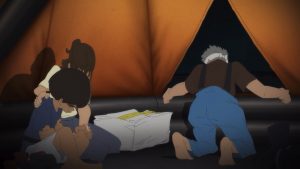 It’s something of a miracle that, as messed up as it is, Nihon Chinbotsu 2020 never quite lost the ability to make me give a damn. The essential premise here is so relatable, especially in the times we’re living in, and the core characters are both likeable and believable. In point of fact I don’t know which was the more unlikely accomplishment – that Science SARU could screw this adaptation up as badly as they did, or that they could screw it up that badly and still not totally ruin it.
It’s something of a miracle that, as messed up as it is, Nihon Chinbotsu 2020 never quite lost the ability to make me give a damn. The essential premise here is so relatable, especially in the times we’re living in, and the core characters are both likeable and believable. In point of fact I don’t know which was the more unlikely accomplishment – that Science SARU could screw this adaptation up as badly as they did, or that they could screw it up that badly and still not totally ruin it.
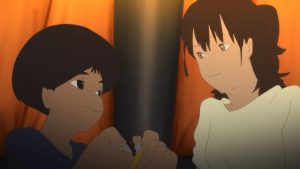 In that light, Episode 8 was something of a natural tonic for all the ails that had bogged the show down over the previous few episodes. It was stripped away of all but the essentials both narratively and visually. For a series that was a critical casualty of kitchen sink syndrome whose production values seemed to be cratering, that was the best possible development. Ayumu and Gou stuck in their survival float was the bulk of the episode, and while there were moments of excess (like the birds and God help us, the shark) what we mostly got was those two talking to each other.
In that light, Episode 8 was something of a natural tonic for all the ails that had bogged the show down over the previous few episodes. It was stripped away of all but the essentials both narratively and visually. For a series that was a critical casualty of kitchen sink syndrome whose production values seemed to be cratering, that was the best possible development. Ayumu and Gou stuck in their survival float was the bulk of the episode, and while there were moments of excess (like the birds and God help us, the shark) what we mostly got was those two talking to each other.
 I think it’s the most normal thing in the world to wonder how one might react if they found themselves in a situation like these two. They react pretty authentically, as the Mutoh have mostly done throughout the series in fact. For the parents like Mari there’s a sense of purpose that’s ingrained here – help your children survive no matter what – but for the children, they have to find their own reasons to keep moving. Ayumu does slip into the protector role with Mari’s absence, quite a natural development for an older sibling especially in Japan, but there’s little she can really do except try to protect her brother from the worst of the horrors confronting them.
I think it’s the most normal thing in the world to wonder how one might react if they found themselves in a situation like these two. They react pretty authentically, as the Mutoh have mostly done throughout the series in fact. For the parents like Mari there’s a sense of purpose that’s ingrained here – help your children survive no matter what – but for the children, they have to find their own reasons to keep moving. Ayumu does slip into the protector role with Mari’s absence, quite a natural development for an older sibling especially in Japan, but there’s little she can really do except try to protect her brother from the worst of the horrors confronting them.
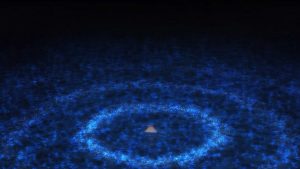 When Mari and Koga finally do find them, it’s a genuinely touching reunion. But we know Mari’s time is limited. This is a scenario where most people are going to die, and she has a pacemaker – there’s only so many ways you can MacGyver that situation until your luck runs out. The way she finally dos go out is a bit of a cliche, but a cliche that I suspect would repeat itself often in a scenario like this, where parents were sadly presented with constant opportunities to sacrifice themselves for their children.
When Mari and Koga finally do find them, it’s a genuinely touching reunion. But we know Mari’s time is limited. This is a scenario where most people are going to die, and she has a pacemaker – there’s only so many ways you can MacGyver that situation until your luck runs out. The way she finally dos go out is a bit of a cliche, but a cliche that I suspect would repeat itself often in a scenario like this, where parents were sadly presented with constant opportunities to sacrifice themselves for their children.
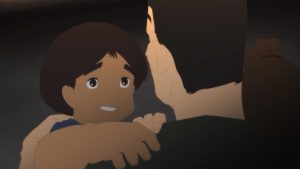 None of this is to say that this concluding batch of episodes finds Japan Sinks freed of all that ails it, unfortunately. There’s still a strong element of death porn to all this, and the show’s obsession with killing off a major character at the end of pretty much every episode borders on self-parody. In #08 it’s Mari, in #09 it’s Haruo. And his sacrifice isn’t for a person, but a storage device – and one that’s not even full at that. This whole business with going to Onodera-san’s coordinates to compile some sort of data that will save Japan feels very tacked-on and random.
None of this is to say that this concluding batch of episodes finds Japan Sinks freed of all that ails it, unfortunately. There’s still a strong element of death porn to all this, and the show’s obsession with killing off a major character at the end of pretty much every episode borders on self-parody. In #08 it’s Mari, in #09 it’s Haruo. And his sacrifice isn’t for a person, but a storage device – and one that’s not even full at that. This whole business with going to Onodera-san’s coordinates to compile some sort of data that will save Japan feels very tacked-on and random.
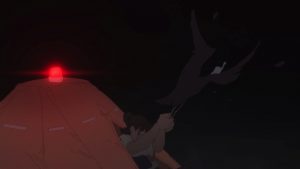 I did rather like the rap scene (something of a Yuasa standard now) at the opening of Episode 9 though. It’s totally absurd of course, but it sort of works on an emotional level. There’s clearly a sort of internationalist message at the core of this story, though whether it comes from the novel or the adaptation I don’t know. Any scene involving Kaitou is going to be grounded in absurdity, because he’s one one of the absurdest characters you’ll ever see, but it was an interesting way to get the point across.
I did rather like the rap scene (something of a Yuasa standard now) at the opening of Episode 9 though. It’s totally absurd of course, but it sort of works on an emotional level. There’s clearly a sort of internationalist message at the core of this story, though whether it comes from the novel or the adaptation I don’t know. Any scene involving Kaitou is going to be grounded in absurdity, because he’s one one of the absurdest characters you’ll ever see, but it was an interesting way to get the point across.
 “Absurd” is a key word here, because it pervades Nihon Chinbotsu 2020 through and through. Once you fall into disaster movie logic most of what happens is not going to hold up to a real-world lens, and that was certainly the case here. There were a couple of directions Yuasa and his team could have chosen to go with this story, and I’m not entirely thrilled that this was the winner – it leaves the whole enterprise steeped in unfulfilled potential. But what really compounds the issue is that if you’re going to go the Hollywood route, you really need to have the production values to back it up, because you can’t fall back on substance. That’s why, unsurprisingly, the best passages of Japan Sinks were its most intimate, personal, and realistic.
“Absurd” is a key word here, because it pervades Nihon Chinbotsu 2020 through and through. Once you fall into disaster movie logic most of what happens is not going to hold up to a real-world lens, and that was certainly the case here. There were a couple of directions Yuasa and his team could have chosen to go with this story, and I’m not entirely thrilled that this was the winner – it leaves the whole enterprise steeped in unfulfilled potential. But what really compounds the issue is that if you’re going to go the Hollywood route, you really need to have the production values to back it up, because you can’t fall back on substance. That’s why, unsurprisingly, the best passages of Japan Sinks were its most intimate, personal, and realistic.
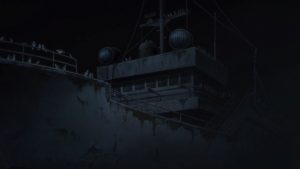 As for how this all ended, well – it was no more ludicrous than the rest of the story. Japan sinks, Japan rises – sure, why the hell not. One could see the seedlings of real poetry in this – a nation wiped from the face of the Earth along with thousands of years of history, kept alive only in the memories of the refugee survivors and in the cloud. And Gou and Ayumu building a new life in a new world, having faced the most unimaginable tragedy mankind has ever faced. But the lack of heavy lifting to get to that point really undercuts whatever power the ending should have had. It’s a fine ending in itself, but any building is only as structurally sound as its foundation. As any earthquake-prone country could tell you.
As for how this all ended, well – it was no more ludicrous than the rest of the story. Japan sinks, Japan rises – sure, why the hell not. One could see the seedlings of real poetry in this – a nation wiped from the face of the Earth along with thousands of years of history, kept alive only in the memories of the refugee survivors and in the cloud. And Gou and Ayumu building a new life in a new world, having faced the most unimaginable tragedy mankind has ever faced. But the lack of heavy lifting to get to that point really undercuts whatever power the ending should have had. It’s a fine ending in itself, but any building is only as structurally sound as its foundation. As any earthquake-prone country could tell you.
 I don’t know what was going on behind the scenes with Japan Sinks, apart from what everyone else does – that this was Yuasa Masaaki’s last project before announcing his resignation as CEO of Science SARU (though he has another film due for 2021 release). But it’s hard to walk away from it without feeling that the normal degree of care and attention a Yuasa-helmed project sees simply wasn’t present here. Nihon Chinbotsu 2020 was sloppy – sloppy-looking, and sloppily-written. The pacing is all over the place, it has far too much material crammed into ten episodes, and the middle portion especially looks extremely rough and ugly. Netflix anime have been a mixed bag to be sure, but at the very least they usually look well-budgeted.
I don’t know what was going on behind the scenes with Japan Sinks, apart from what everyone else does – that this was Yuasa Masaaki’s last project before announcing his resignation as CEO of Science SARU (though he has another film due for 2021 release). But it’s hard to walk away from it without feeling that the normal degree of care and attention a Yuasa-helmed project sees simply wasn’t present here. Nihon Chinbotsu 2020 was sloppy – sloppy-looking, and sloppily-written. The pacing is all over the place, it has far too much material crammed into ten episodes, and the middle portion especially looks extremely rough and ugly. Netflix anime have been a mixed bag to be sure, but at the very least they usually look well-budgeted.
 The fact is, I really thought we had something special on our hands after the first episode. This premise with this director and Netflix money – how could Nihon Chinbotsu 2020 not be a standout? It’s of dubious merit to sit in front of a screen and decry writing and directorial choices as mistakes, because those are the writer and director’s job. But that’s what criticism is, and for me this is a series that winds up representing its mistakes more than its successes. There was so much potential here, so much possibility, and that it went mostly unfulfilled is strictly an unforced error – this was the show Yuasa chose to make. I’ll very much be looking forward to the next one (though it may be a while), because even in a series like this Yuasa’s talent is unmistakable. But I hope the next go-around is considerably more successful.
The fact is, I really thought we had something special on our hands after the first episode. This premise with this director and Netflix money – how could Nihon Chinbotsu 2020 not be a standout? It’s of dubious merit to sit in front of a screen and decry writing and directorial choices as mistakes, because those are the writer and director’s job. But that’s what criticism is, and for me this is a series that winds up representing its mistakes more than its successes. There was so much potential here, so much possibility, and that it went mostly unfulfilled is strictly an unforced error – this was the show Yuasa chose to make. I’ll very much be looking forward to the next one (though it may be a while), because even in a series like this Yuasa’s talent is unmistakable. But I hope the next go-around is considerably more successful.


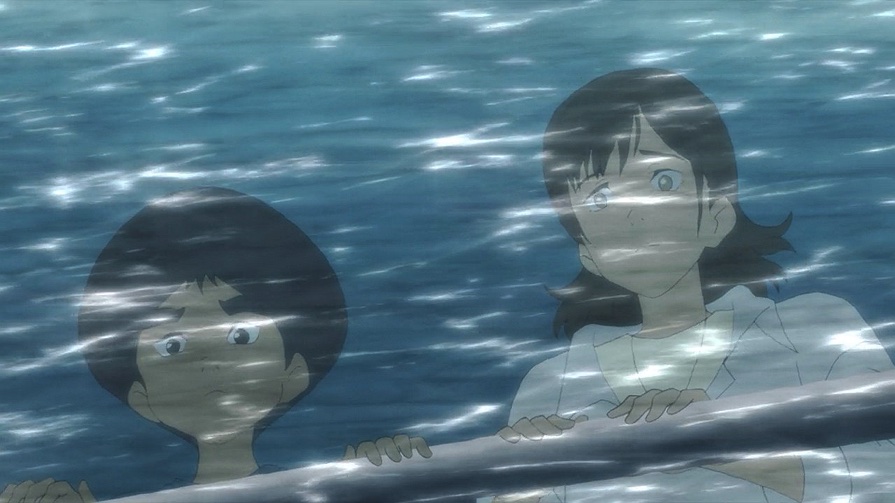




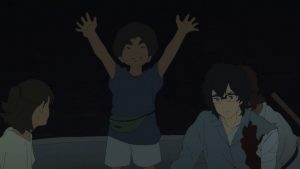
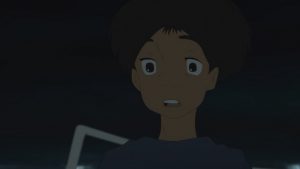
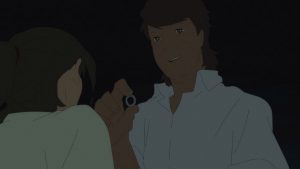
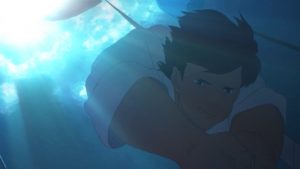
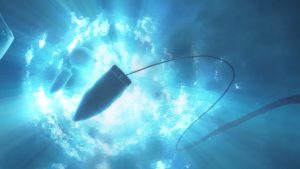



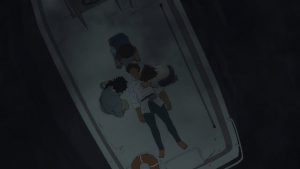
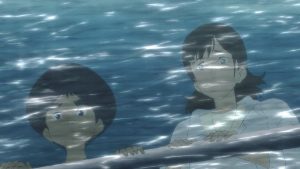
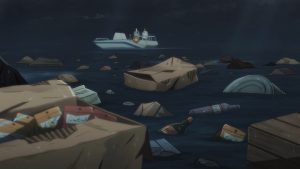
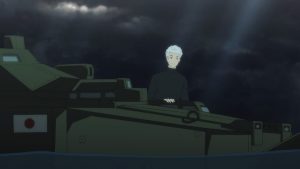
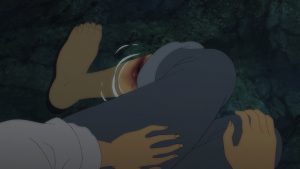

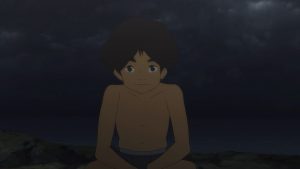
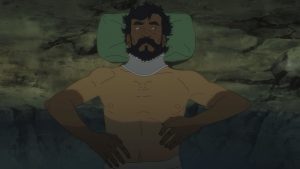
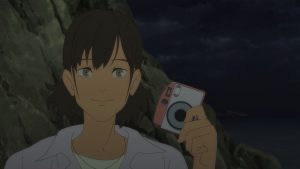



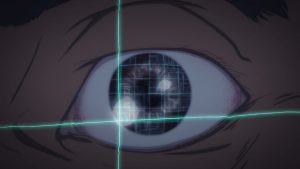

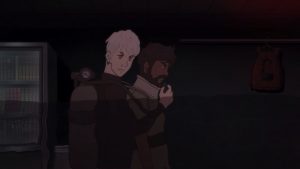
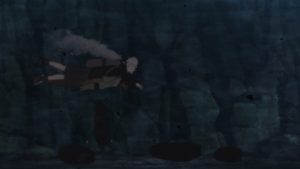
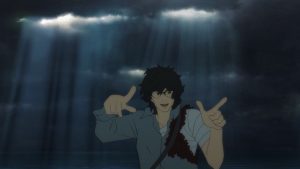





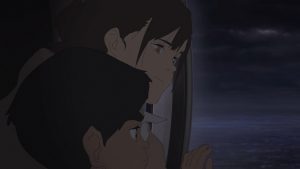

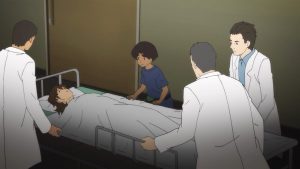
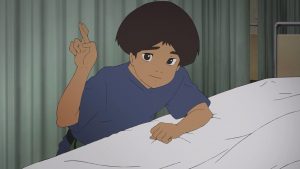
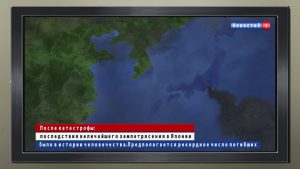



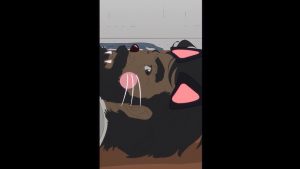
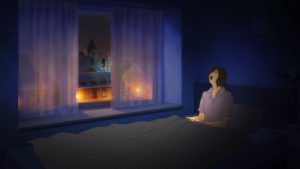


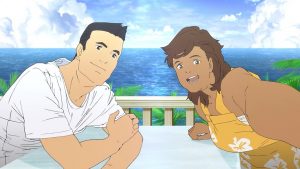
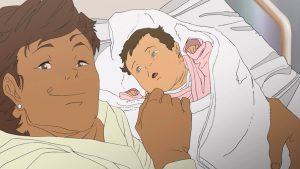
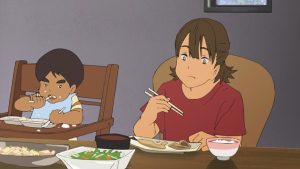

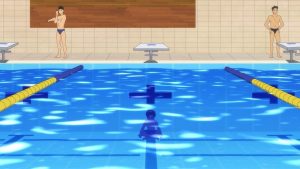
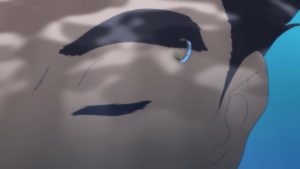


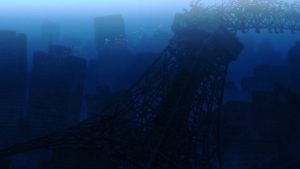
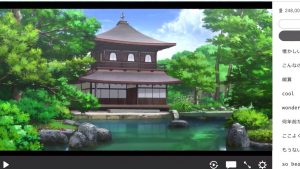

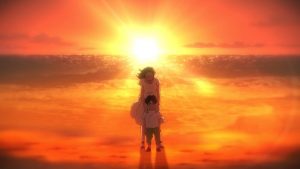
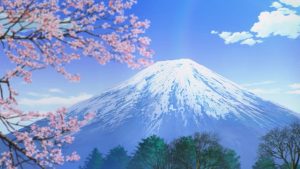
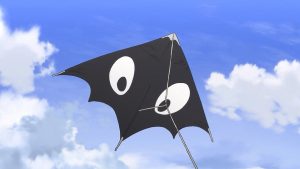

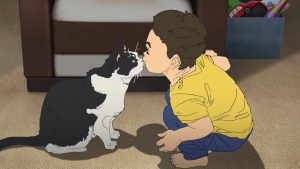

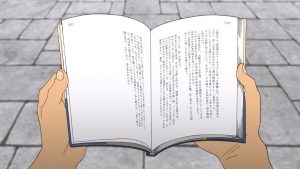


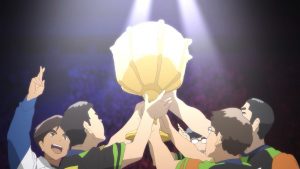

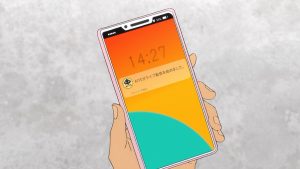



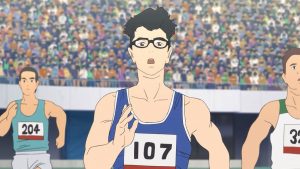

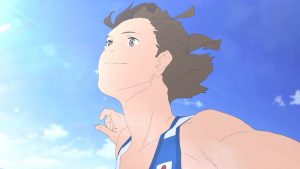
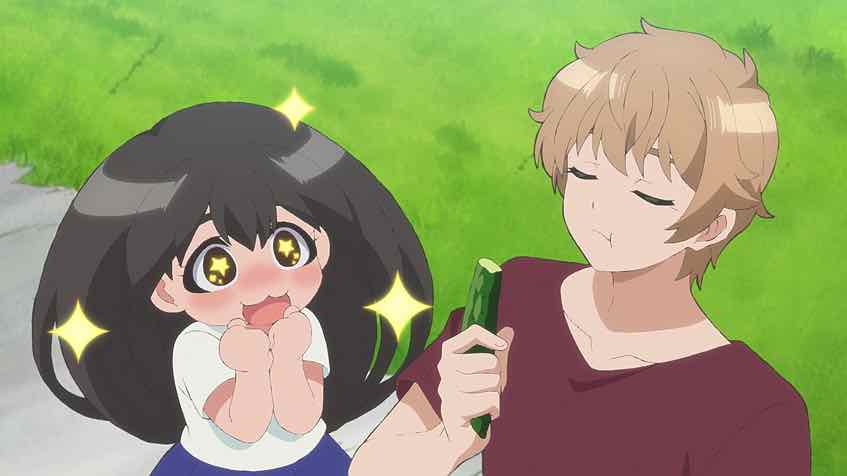
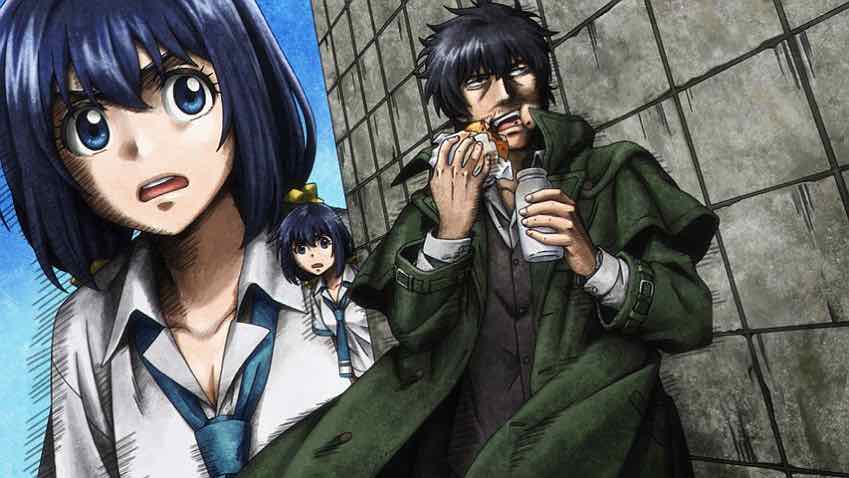
dc22
July 19, 2020 at 10:58 pmPyeonggang Heo is the actual director of Japan Sinks 2020.
I bet Yuasa just supervised as co-director for the name recognition.
Yukie
July 24, 2020 at 12:03 amI don’t know why, but it felt like Devilman Crybaby’s shadow was constantly lurking over this show. As if every time the plot progresses a certain amount of time, the shadow would suddenly pop out shouting “Not enough drama!”
Guardian Enzo
July 24, 2020 at 8:53 amInteresting observation. Maybe Yuasa feeling – rightly or wrongly – like he was trying to meet a certain Netflix expectation?